Explanation of my 10 Ballon d'Or 1976
This is my ranking, my opinion on the Ballon d'Or of the year 1976. This ranking is based on the calendar year, not the season. What counts for this ranking is the player's regularity over the calendar year, the number of matches played, the ability to raise his level in big games, statistics (goals, assists, clean sheets, goals conceded, etc.) and trophies won (collective and individual).
#10 Johan Cruyff
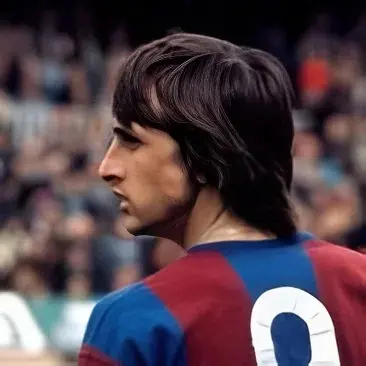
- Age : 28/29 years old
- Club : FC Barcelona
- Statistics : 44 games, 14 goals, / assists
- Trophies : Liga Vice-Champion
- Individual Awards : Liga TOTY
In 1976, Johan Cruyff was still the conductor of a revolution. At 29, he was no longer the fresh-faced prodigy who had redefined Ajax or the golden thread of the Dutch symphony in 1974, but he remained the spiritual compass of FC Barcelona—a club still learning to dream in orange and blue. That year, Cruyff didn’t just play football. He sculpted it. He drifted between the lines like a ghost with purpose, turning geometry into poetry, and space into a weapon. His passes weren’t just accurate—they were prophetic. Barcelona didn’t win La Liga that year. They finished second, again. But Cruyff’s influence transcended silverware. In 1976, he played 44 matches and scored 14 goals across all competitions. The assist numbers? Lost to time, like brushstrokes on a fading canvas. But anyone who watched him knew—he was the assist. The idea. The movement before the movement. Off the pitch, the world was changing. Franco was dead. Spain was awakening. And Cruyff, the foreign icon who had once refused to bow to the dictator’s anthem, became a symbol of something freer, something bolder. He wasn’t just a footballer—he was a statement.
#9 Rivellino
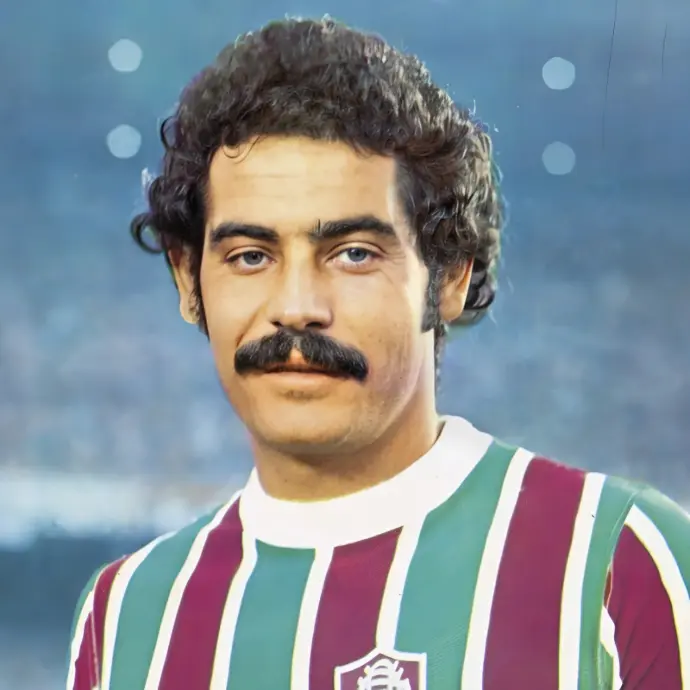
- Age : 30 years old
- Club : Fluminense
- Statistics : 52 games, 14 goals, / assists
- Trophies : Copa Roca, Atlantic Cup, Copa Rio Branco, Copa Oswaldo Cruz, Rio Championship
- Individual Awards : South American TOTY
In 1976, Rivellino was Brazil’s left-footed tempest—equal parts elegance and fire. At 30, he was no longer the fresh-faced prodigy of Corinthians or the samba soul of the 1970 World Cup, but he remained the heartbeat of Fluminense and a symbol of Brazilian flair in its most defiant form. That year, he wasn’t just playing football—he was performing it, with a moustache that curled like his free kicks and a swagger that made defenders hesitate before they even moved. He played 44 matches for Fluminense that year, scoring 13 goals. But numbers barely scratch the surface. Rivellino was the thunder before the goal, the pause before the explosion. His passes curved like brushstrokes, his dribbles hypnotized, and his left foot—oh, that left foot—could launch missiles or lullabies, depending on his mood. In April, he scored a stunning goal against Uruguay in the Taça do Atlântico, a match that descended into chaos and fists. When the final whistle blew, a brawl erupted. Rivellino, ever the firebrand, threw a punch, then sprinted down the Maracanã’s tunnel, diving into the stairwell to escape the melee. It was a moment that captured him perfectly: brilliant, volatile, unforgettable. Off the pitch, Brazil was changing. The dictatorship still loomed, but the people were restless. Rivellino, with his rebellious streak and working-class roots, was more than a footballer—he was a mirror of the nation’s contradictions. He played with joy, but also with rage. With artistry, but also with defiance.
#8 Zico
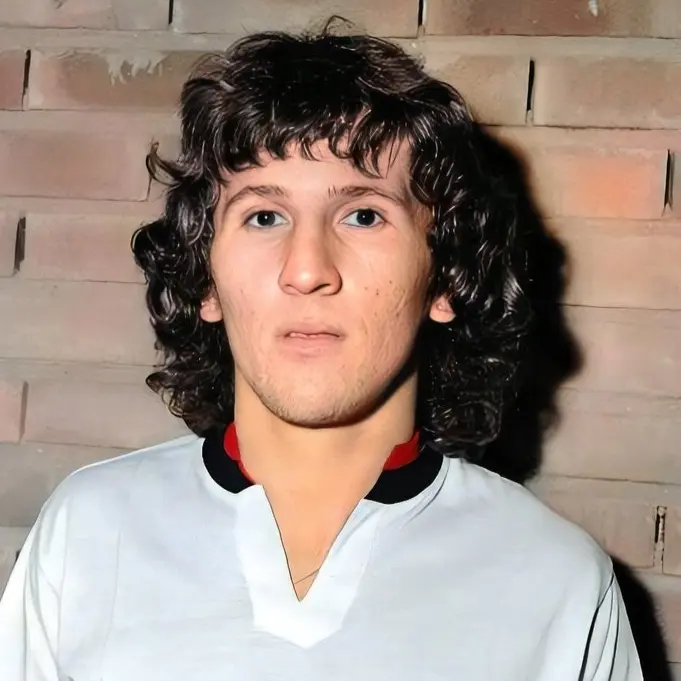
- Age : 22/23 years old
- Club : Flamengo
- Statistics : 55 games, 38 goals, 17 assists
- Trophies : Copa Roca, Atlantic Cup, Copa Rio Branco, Copa Oswaldo Cruz
- Individual Awards : South American TOTY
In 1976, Zico was the rising sun of Brazilian football—brilliant, burning, and impossible to ignore. At 23, he was no longer just a prodigy from Flamengo’s youth ranks. He was becoming something more: a conductor of chaos, a sculptor of goals, and the heir apparent to Pelé’s throne. That year, Zico didn’t just play football—he illuminated it. He scored 38 goals in 1976, a staggering number that blurred the line between midfielder and striker. But Zico was never just about goals. He was about rhythm. About the way he could slow a match to a heartbeat, then explode into motion with a shimmy, a flick, or a curling free kick that seemed to defy physics. His right foot was a wand, and the Maracanã was his stage. Flamengo didn’t win the national title that year. But Zico won something deeper: the devotion of a nation. In the Campeonato Carioca, he was untouchable—gliding past defenders like they were memories, not men. His partnership with Junior and Adílio was beginning to blossom, and the seeds of Flamengo’s golden era were being sown.
#7 Ivo Viktor
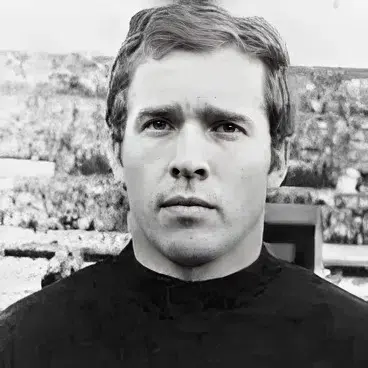
- Age : 33/34 years old
- Club : Dukla Prague
- Statistics : / games, / goals conceded, / clean sheets
- Trophies : Euro
- Individual Awards : Czechoslovak POTY, Euro TOTT
In 1976, Ivo Viktor stood alone—calm in the storm, a sentinel in gloves. At 34, he was not just the last line of defense for Dukla Prague and Czechoslovakia. He was their anchor, their heartbeat, their quiet defiance. That year, Viktor didn’t just guard the goal—he guarded a dream. He had spent over a decade in the shadows of Europe’s greats, rarely mentioned in the same breath as Banks or Maier. But in 1976, the world finally looked his way. At the European Championship in Yugoslavia, Viktor was transcendent. Against the Netherlands in the semifinal, he was a wall. Against West Germany in the final, he was a prophet—anticipating, reacting, saving. His hands denied Rainer Bonhof. His positioning frustrated Heinz Flohe. And though he didn’t stop a penalty in the shootout, he had already done enough. The trophy was theirs. The glory, shared. But the calm in the chaos? That was all Viktor.
#6 Michel Platini
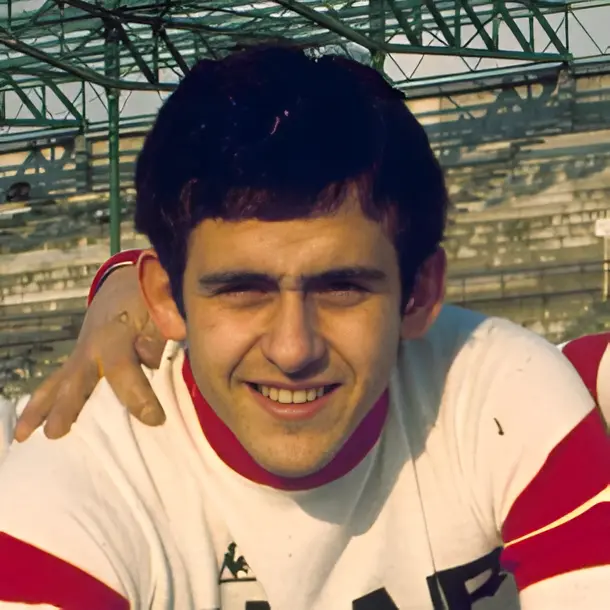
- Age : 20/21 years old
- Club : AS Nancy-Lorraine
- Statistics : 49 games, 40 goals, / assists
- Trophies : /
- Individual Awards : French POTY, French League POTY, French League TOTY
In 1976, Michel Platini was the spark before the blaze—the prodigy who turned promise into prophecy. At just 20 years old, he wasn’t yet the emperor of Europe or the three-time Ballon d’Or winner. But in that single year, he became something more dangerous: inevitable. He played 45 matches and scored 37 goals—a staggering return for a midfielder still learning to command the pitch. At AS Nancy, he was already the axis around which the team spun, a No. 10 who played like a chess master with a stopwatch. His free kicks curled like secrets. His vision sliced through defenses like a scalpel. And his confidence? Unshakable. “Passe-moi la balle et je la mets au fond,” he said before his debut with Les Bleus in March. Give me the ball, and I’ll put it in the net. That debut came on March 27, 1976, against Czechoslovakia at the Parc des Princes. Only 9,559 fans showed up. Most didn’t know they were witnessing the beginning of an era. Platini didn’t score, but he didn’t need to. His touch, his tempo, his presence—it was all there. France had found its new maestro. That summer, he captained the French Olympic team in Montreal. He scored twice against Guatemala, once against Mexico. The team fell in the quarterfinals, but Platini’s star only rose. He was no longer just a talent from Lorraine. He was the future of French football.
#5 Kevin Keegan
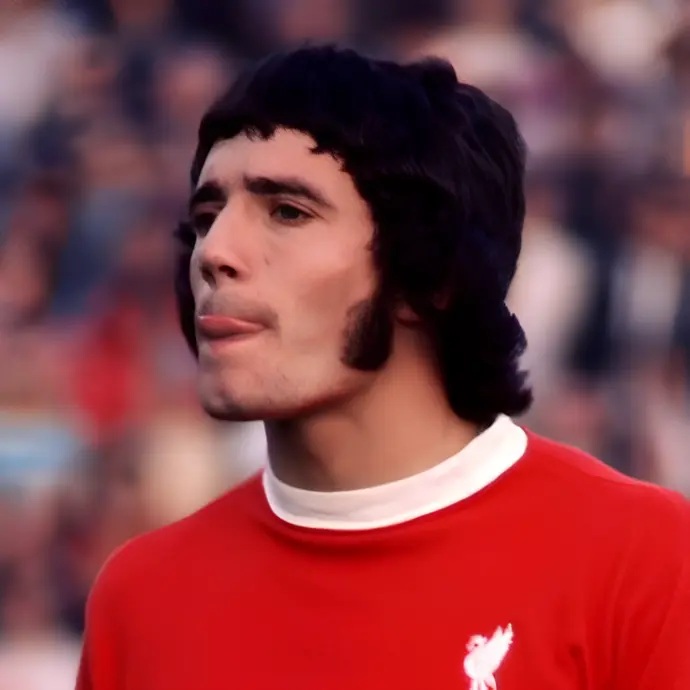
- Age : 24/25 years old
- Club : Liverpool FC
- Statistics : 63 games, 21 goals, 19 assists
- Trophies : Europa League, Premier League, Community Shield
- Individual Awards : Europa League TOTY, Premier League POTY, Premier League TOTY
In 1976, Kevin Keegan was English football’s electric pulse—relentless, fearless, and utterly magnetic. At 25, he was the face of Liverpool’s resurgence and the embodiment of a new kind of forward: one who didn’t just score, but pressed, harried, and dragged entire defenses into chaos. That year, Keegan didn’t just play football—he attacked it. He scored 19 goals in the 1975–76 season, but it was the way he played that left its mark. In May, he delivered one of his most iconic performances in the UEFA Cup Final against Club Brugge. After Liverpool had gone 2–0 down in the first leg at Anfield, Keegan sparked the comeback—scoring twice and assisting another in a 3–2 win. In the return leg in Bruges, he equalized with a thunderous strike, securing the aggregate victory and the trophy. It was Liverpool’s second UEFA Cup in four years, and Keegan was at the heart of both. That same season, Liverpool also clinched the First Division title. Keegan was everywhere—linking with Toshack, tormenting defenders, and leading by example. His tireless energy and fearless runs made him a nightmare to mark and a dream for the Kop.
#4 Elías Figueroa
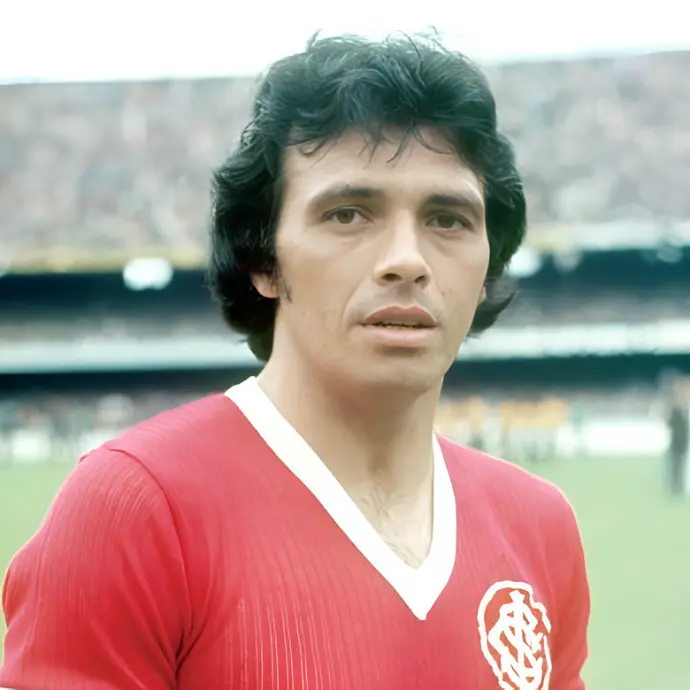
- Age : 29/30 years old
- Club : Internacional
- Statistics : 28 games, 1 goal, 0 assist
- Trophies : Brazilian League, Rio Grande do Sul Championship
- Individual Awards : South American POTY, South American TOTY, Brazilian League POTY, Brazilian League TOTY
In 1976, Elías Figueroa was the wall that breathed—the calm in the storm, the elegance in defense. At 29, he was at the absolute peak of his powers, the undisputed general of Internacional’s backline and the soul of Chilean football. That year, he didn’t just defend—he defined what defending could be. With Internacional, he led the club to a second consecutive Campeonato Brasileiro title, anchoring a team that won 19 of its 23 matches. He didn’t just stop goals—he started attacks. His anticipation was telepathic, his positioning surgical, and his leadership so commanding that teammates called him “Don Elías.” In a league brimming with attacking flair, Figueroa stood out by making silence look like strength. In 1976, he was named South American Footballer of the Year for the third time in a row—a feat no defender had ever achieved. In Brazil, where defenders were often seen as necessary evils, Figueroa was revered like a playmaker in disguise. He didn’t slide—he glided. He didn’t shout—he guided. And when he rose for a header, it was as if time paused to admire the form.
#3 Gerd Müller
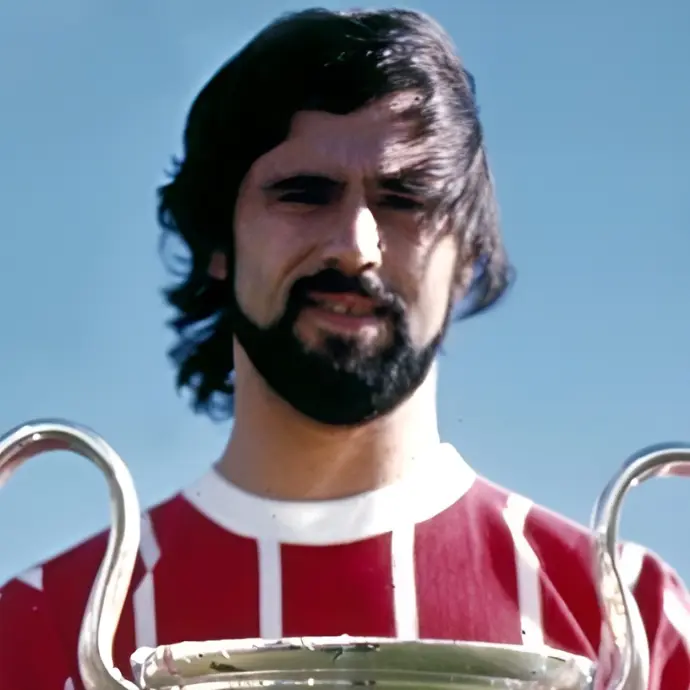
- Age : 30/31 years old
- Club : Bayern Munich
- Statistics : 54 games, 61 goals, 2 assists
- Trophies : Champions League, Intercontinental Cup, Finalist UEFA Supercup
- Individual Awards : Champions League TOTY, Bundesliga TOTY
In 1976, Gerd Müller was still the most feared man inside the box—a predator with the instincts of a poet. At 30, “Der Bomber” was no longer the fresh-faced phenom who had conquered Europe and the world. But he remained a master of the moment, a striker who needed neither space nor time—just the scent of a chance. That year, Müller played 54 matches and scored 61 goals, a staggering return even by his own impossible standards. He led Bayern Munich to the European Cup title for the third consecutive year, scoring five goals in the tournament and earning the Champions League Golden Shoe. In the Bundesliga, he remained relentless—scoring 23 goals in 22 league appearances, a blur of toe-pokes, volleys, and headers that seemed to defy logic. But 1976 was also a year of transition. Bayern’s domestic dominance was beginning to wane. The team finished mid-table in the league, and the golden era that Müller had helped build was starting to fade. Yet he kept scoring, kept moving, kept believing. Because for Müller, goals weren’t just a statistic—they were a language. And he spoke it fluently.
#2 Rob Rensenbrink
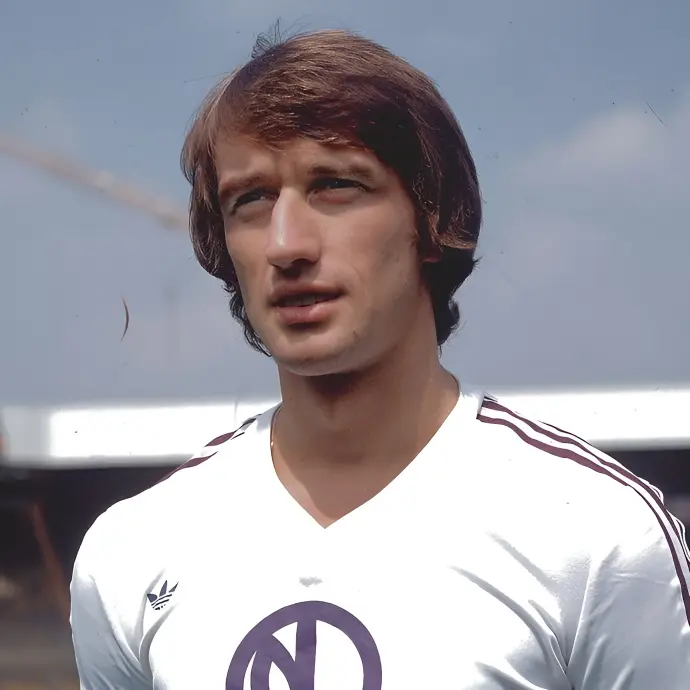
- Age : 28/29 years old
- Club : Anderlecht
- Statistics : 51 games, 35 goals, 6 assists
- Trophies : Cup Winners Cup, UEFA Supercup, Belgian League Vice-Champion, Belgian Cup
- Individual Awards : Cup Winners Cup POTY, Cup Winners Cup TOTY, Cup Winners Cup Golden Shoe (8 goals), Belgian League POTY, Belgian League TOTY
In 1976, Rob Rensenbrink was Europe’s most elegant enigma—a left-footed illusionist who turned football into ballet. At 29, he was at the height of his powers with Anderlecht, not just a winger but a conjurer, a man who could glide past defenders like wind through tall grass. That year, he didn’t just play matches—he painted them. He played 51 games, scored 35 goals, and delivered 6 assists. But even those numbers feel like an understatement. In the Cup Winners’ Cup Final, he was incandescent—scoring twice against West Ham United and assisting the final goal in a 4–2 triumph. It was a performance that crowned Anderlecht as European champions and Rensenbrink as the tournament’s Golden Boot winner with 8 goals. He also lifted the Belgian Cup that year and was named Belgian Footballer of the Year, a rare feat for a foreigner in a league that had long favored its own. His dribbling was serpentine, his penalties unerring—he missed only two in his entire career. And when he cut in from the left, defenders didn’t just backpedal—they vanished.
Winner : Franz Beckenbauer
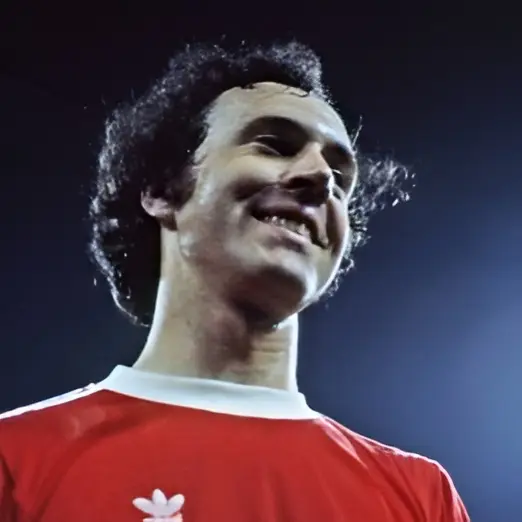
- Age : 31/32 years old
- Club : Bayern Munich
- Statistics : 59 games, 8 goals, 8 assists
- Trophies : Finalist Euro, Champions League, Intercontinental Cup, Finalist UEFA Supercup
- Individual Awards : German POTY, Euro TOTT, Champions League TOTY, Bundesliga POTY, Bundesliga TOTY
In 1976, Franz Beckenbauer ruled the game with velvet authority—an emperor in boots, gliding through football’s most turbulent arenas with unshakable grace. At 30, he was no longer just the sweeper who had redefined the role. He was the axis of Bayern Munich, the captain of West Germany, and the mind behind every movement. That year, he played over 45 matches, scored 4 goals, and lifted two major trophies: the European Cup in May—his third in a row with Bayern—and the Intercontinental Cup in December. But 1976 was more than silverware. It was the year Beckenbauer became myth. In June, he led West Germany to the final of the European Championship. They clawed back from 2–0 down against Czechoslovakia, only to lose in penalties to a moment of audacity: Panenka’s now-legendary chip. Beckenbauer didn’t flinch. He stood still, absorbing the moment like a man who understood that even defeat could be immortal. In August, he captained Bayern in the UEFA Super Cup against Anderlecht. They won the first leg 2–1, but were stunned 4–1 in the return. It was a rare crack in the armor. Bayern’s domestic form faltered too—they finished mid-table in the Bundesliga. But Beckenbauer’s brilliance never dimmed.